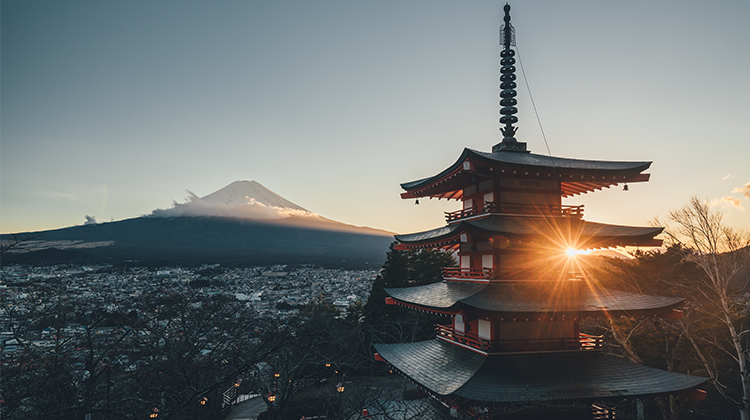1. You Need a Physical Credit Card and Cash
Contactless payment by mobile phone has not yet been introduced in many shops, except in convenience stores. Many privately owned souvenir shops and izakayas (Japanese taverns), especially outside Tokyo, will only accept cash. It is highly recommended to carry cash and a physical credit card (Visa or Master).
2. English Is Not Always Available
Do not expect that young people in Japan, as in other developed countries, will speak English.
But don't give up! If you speak English word by word, not sentence by sentence, and with a katakana pronunciation (Japanese-style pronunciation), you will often be understood.
For example,
If you want to ask ‘Does this bus go to Tokyo Station?’
Say just ‘Tokyo-Steh-shon?’ (Tokyo station?)
or
’Kamera okay?’ instead of ‘May I take pictures here?’.
3. Uber Is Not the Option (in most cities)
Unfortunately, Uber is not available in most Japanese cities. Even in Tokyo, the areas where it is available are limited and the number of vehicles is low.
Another taxi app is often used in Japan. Try searching for 'タクシー' in the app store when you arrive in Japan.
4. Lost Something? Go to Koban (交番:Police station)
Have you lost something? Go to the police station!
If you lose your mobile, wallet or anything, report the details of what you lost at the police station and you will usually get your lost item back within three days. In most cases, a kind-hearted person will deliver the lost item to the police station.
My husband and I once dropped keys, wallet and passport in Tokyo, but got them back on the day or the day after.
5. Limited Free-From Food Options
Unfortunately, the free-from section is still very small in Japan, and Halal foods are also rarely seen.
Sugar-free snacks are rarely sold and stevia is also hard to find.
If you have strict dietary restrictions, you may want to bring snacks from your own country.
However, check the Japanese quarantine before bringing them in. Meat, raw fruit and vegetables, and plants with soil on them cannot be brought into Japan. Dairy products such as natural cheese are also subject to quarantine.
6. You Don’t Need to Bring Toothbrush and Pajama
Hotels usually provide a toothbrush and pajamas as amenities. Other amenities often provided include disposable hairbrushes, razors, shaving foam and slippers. Check the amenities at the hotel where you are staying to reduce the amount of luggage you have to carry. To bring home as many souvenirs as possible...!
7. Each Portions Are Small
Japanese people generally eat small meals. In fact, Japan has one of the lowest obesity levels in the world. Many American men need to order a meal for two in Japan.
And don't be surprised that the plates of food at izakaya (restaurants for enjoying sake) are too small! In such restaurants, each person usually does not order one dish as a main dish, but, for example, if two people go to an izakaya, they usually order five or six dishes and share them together.
If you want to know how big a dish is, you can ask:
これはなんにんまえですか?(kore wa nannin mae deska) - How many servings is this?
8. Do you have $1? You Can Buy All Sorts of Stuff!
You don't need to prepare a lot of travel items before you come to Japan. This is because in Japan you can buy a wide range of daily necessities at 100 yen shops. You can find everything from snacks and hygiene products to cute pens and notebooks, laundry products, cosmetics and tableware.
9. Do Not Wear…
International tourists often feel they are being gawped at in Japan.
One reason for this is the cultural difference in dress.
I personally believe that all people should be free to dress the way they want to and I hate to say this but it is not generally accepted to wear leggings on their own as a bottom item. If you walk down the street in a pair of tight-fitting leggings, you will unfortunately get stares.
Likewise, if you walk around town in a T-shirt without a bra, you are likely to be stared at. In Japan, the idea that you have to wear a bra is still very strong.
Also, when wearing perfume in Japan, it is recommended to limit it to only one push. This is because many Japanese people are sensitive to odours.
It is considered bad manners to wear perfume when going to restaurants (especially fine dining restaurants).
10. Wear Mask Indoors
Most people in Japan still wear masks both indoors and outdoors.
This does not mean that now is the peak of infection, but everyone is making an effort to reduce the number of infected people as much as possible.
Wear a mask as much as possible, especially when spending time indoors.
Tell Me Your Opinion!
Do you have more questions about traveling to Japan? Do you have any advice for people traveling to Japan for the first time? Let me know in the comments section. Thanks for reading!







